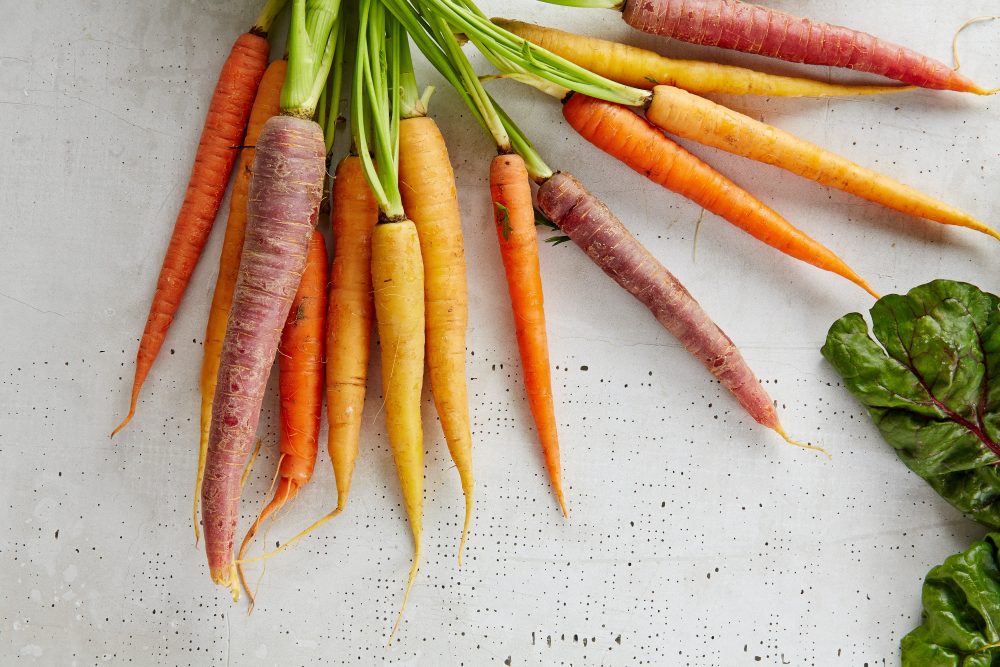Healthy Winter Vegetables

Carrots are perhaps the best-known of all winter produce. As long as they’re kept from freezing in the ground, they just get sweeter as the temperature drops. Carrots are high in beta carotene, the precursor to vitamin A, as well as other antioxidants. They’re also rich in B vitamins, vitamins C and K1, and minerals such as potassium. Carrots are your friend when you’re looking to support your immune system, prevent cancer, and take care of your eyes.
You can store carrots in the fridge for a few weeks, or for up to half a year in a well-regulated root cellar. They’re great raw in salads and slaws, as edible utensils for dips, and blended into smoothies. Cooked, they add flavor and color to soups and stews, provide sweetness when roasted as part of a veggie side, and can star on their own in carrot bacon and carrot dogs, providing texture and a vehicle for smoked flavor without the need for processed meat and its harmful dietary nitrates.
Winter Squash has winter right there in the name! Full of nutritional benefits and also wildly tasty, this family of what are technically fruits (with seeds inside) can last a long time, and even manage to be adorably decorative while doing so. Butternut squash, acorn squash, pumpkins, and dozens of other varieties will keep for months (as long as you can resist carving faces into them), and lend their wonderfully organic textures and colors to your pantry, sideboard, or dining table centerpieces.
Plus, they’re ridiculously good for you. They are rich sources of A, C, and B vitamins, high in antioxidants, and provide crucial minerals such as potassium, magnesium, and manganese. If you’re into cardiovascular and metabolic health, winter squash make powerful dietary allies. They’re also good for the health and radiance of your hair and skin, and contribute nutrients that support vision, as well.
Your average butternut or acorn squash will live happily (I assume) on a kitchen counter for up to three months, and twice that (or more) in a cool environment such as a cellar.
You can use winter squash as a base for soups and stews, bake or roast them for a side dish, enjoy them stuffed as a main dish, and even cooked and blended into sauces or toppings for pasta and grain dishes.
( Excerpt taken from the Food Revolution Network)
